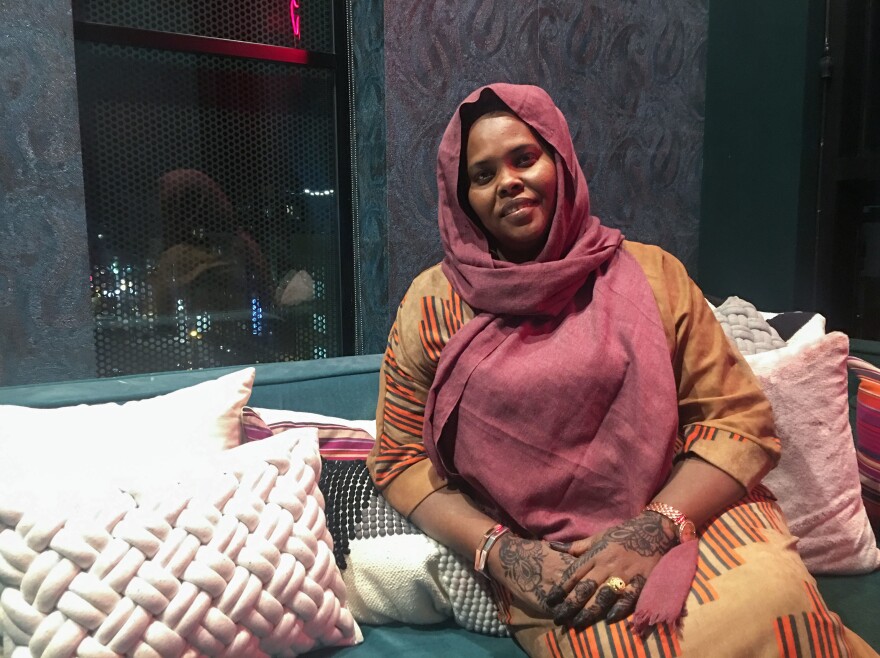When 24-year-old Abdirizak Warsame came home from prison over the summer, his family welcomed him with his favorite foods and long talks with the siblings he hadn't seen in three years. They were reunited, grateful for a fresh start.
Outside of their house in Minneapolis, however, Abdirizak's homecoming was a different story.
Snitch. Liar. FBI informant. Those are the labels attached to Abdirizak and his family in the large Somali-American community in the Twin Cities. Word of his release added salt to a deep wound. Abdirizak was among nine young men who planned to travel to Syria to join ISIS. They were busted by the FBI, slapped with serious terrorism charges, and left with a choice: To cooperate with the feds or not.
"A lot of people in the community, they are mad because he told the truth," Deqa Hussein, Abdirizak's mother, told NPR in a two-hour interview this month.
Her son, Abdirizak, decided to help authorities in their landmark case – the biggest ISIS recruiting prosecution in the nation. He also appeared on 60 Minutes to denounce ISIS. Those steps paid off at sentencing in 2016. Some of his co-defendants received more than 30 years in prison. Abdirizak got 30 months.
The Somali immigrant community was outraged — many criticized the federal government as coming down too hard on recent high school grads with no criminal records. Abdirizaq's decision to "snitch," as many see it, was unforgivable.
Deqa shares the community's anguish, she said, but she's tired of what she calls denial and the scapegoating of her family. She said the FBI's intervention, as painful as it was, probably saved their sons from a violent end on a faraway battlefield.
"I never thought my second oldest would be a criminal. Someone brainwashed him. But I accept it," Deqa said. "Thank God. He's alive. There's a lot of parents whose kids went there and died."
After serving his time, Abdirizak is home, among the first of roughly 100 terrorism-related convicts scheduled for release in the next couple of years. Most of the cases are much older, dating back to the beginning of the so-called War on Terror in the aftermath of the Sept. 11 attacks.
The fact that Abdirizak is already out is testament to the unusual deal he struck in an approach that was seen as experimental: Defendants who cooperated got leniency in sentencing and specialized help to address extremist views.
On top of her son's decision to work with the government, Deqa broke the silence that typically shrouds cases like this in the tight-knit Somali-American community. She's used her experience as a cautionary tale to warn other parents to watch for signs of radicalization. There is now more awareness among families in Minnesota, Deqa insists. But it's come at a cost.
Deqa said whispers follow her anytime she steps out in Somali society. At the mall. At restaurants. Every time a woman tries to befriend her, Deqa said, others in the community warn her away. Just the other day, Deqa said, a stranger got in her face in public and demanded to know if it's true that she works for the FBI.
"I still pay the price. They're still calling me snitch, they still calling me a bad person," she said. "They wish me dead."
Andy Luger, the former U.S. attorney for Minnesota, led the prosecution of the nine men and said he's not surprised Abdrizak's family members are getting the pariah treatment.
"As long as there are voices that seek to penalize anyone who works with the government, then that is going to survive," said Luger, who's now out of office.
Luger saw firsthand how polarizing the case was, but he said he also saw progress in the willingness to talk openly about violent extremism. He recalled a meeting with 125 Somali mothers and grandmothers sitting face-to-face with police and federal authorities.

"I said to them, 'There are voices in the community that don't want you talking to us. What do you say to them?' And a grandmother raised her hand and said, 'We're here. We're talking,'" Luger said. "Does that mean Deqa and her son won't be ostracized by many? No. But that's the flip side, that's the other side."
Deqa said her son, Abdirizak, is doing well. He works. He comes home. She said he doesn't trust anyone. He still lives under strict conditions of release; he wasn't allowed to be interviewed. Deqa said he apologizes all the time for what he's put the family through. She tells him to focus on the future, and to promise he won't squander his second chance.
"You accept your mistakes and guess what? You're out today," Deqa tells Abdirizak. "Just follow the rules, don't mess up your probation status. Follow the rules."
He already feels so guilty, Deqa said, that she can't bring herself to tell him how bad the backlash has gotten. For example, she didn't tell her son that she was on the dance floor at a recent wedding when another guest locked eyes with her and made a throat-slitting gesture.
The retaliation is no longer just painful, Deqa said. It's scary.
Some days, she considers filing a harassment complaint. Other days, she meets with real estate agents. After nearly 25 years in the Twin Cities, Deqa said, maybe it's time to go.
"It's gone too far. It has been four years," she said. "I cannot take any more."
Copyright 2021 NPR. To see more, visit https://www.npr.org.



